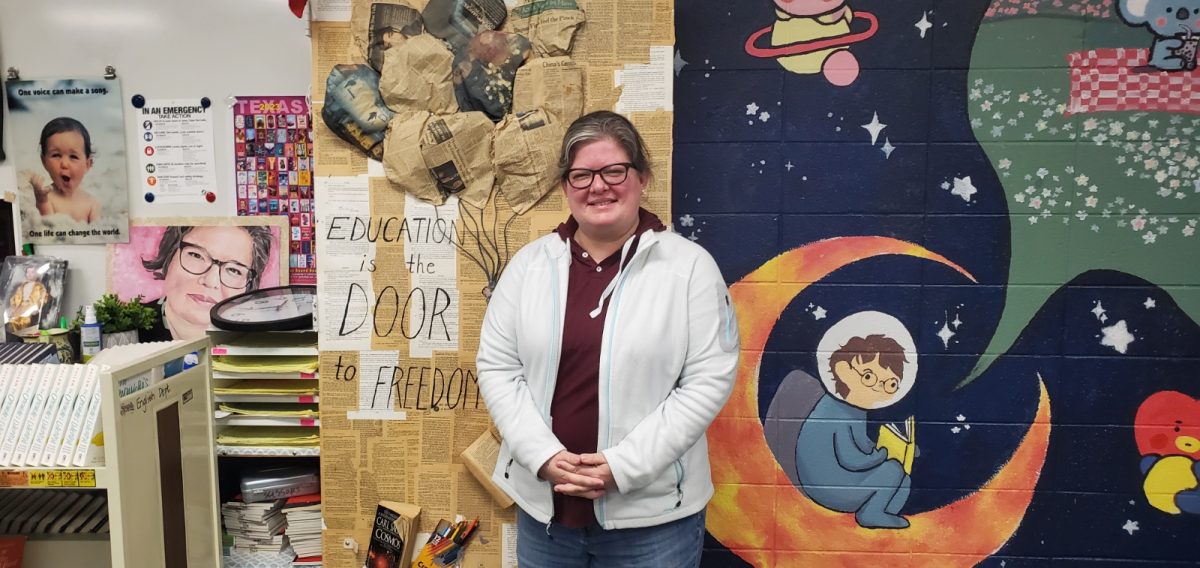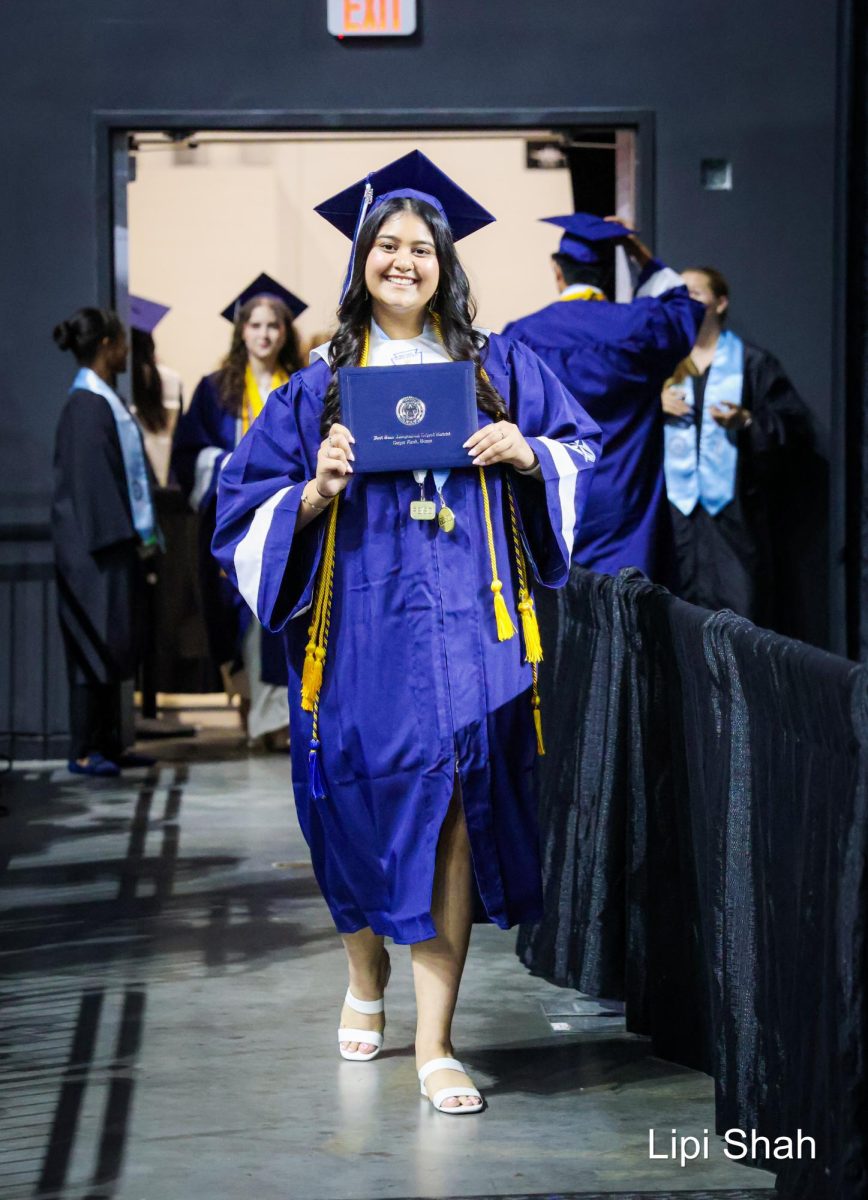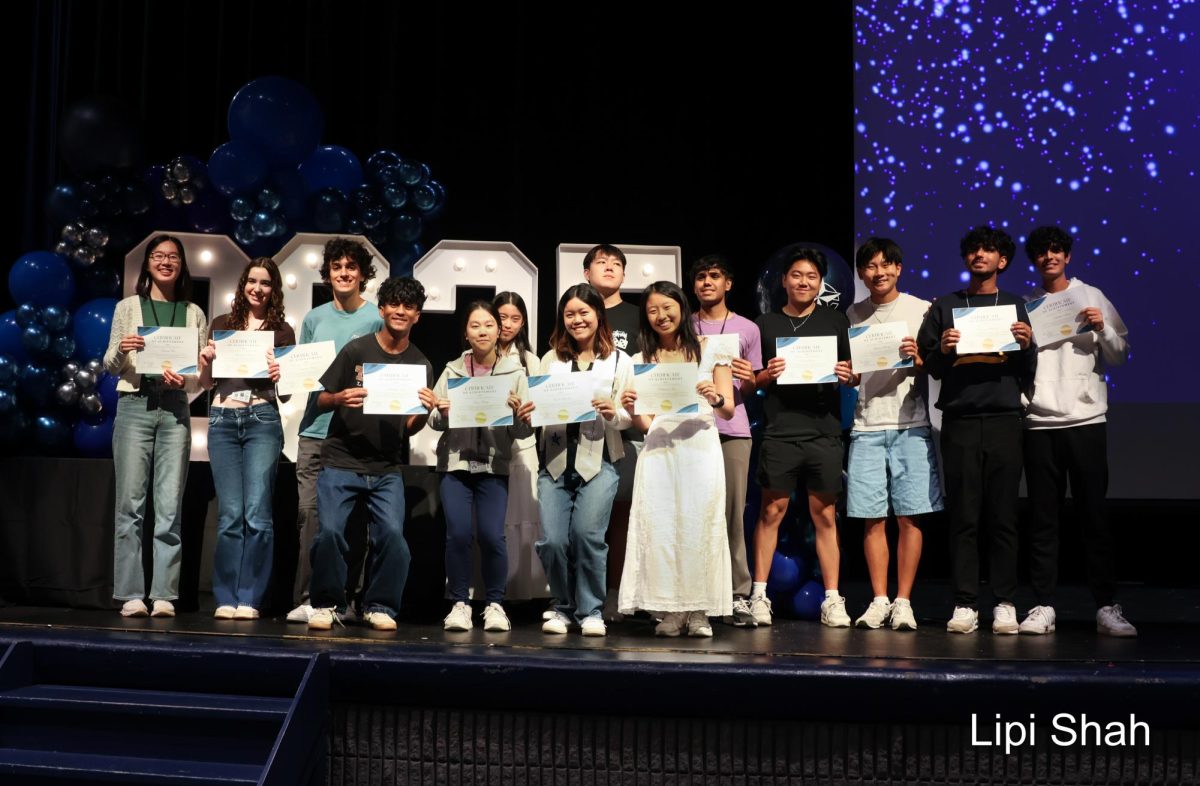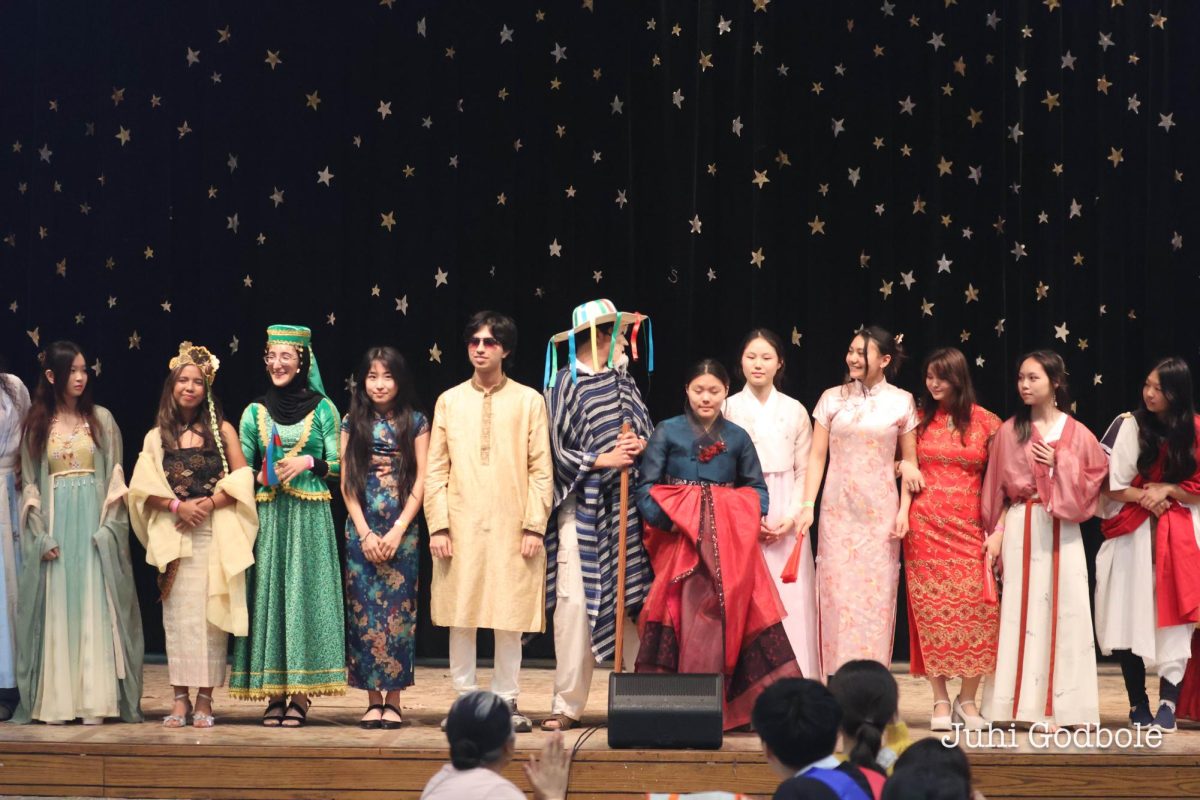In the modern day, the concept of reading among students seems to have become drained by social media, artificial intelligence, and increased consumption of movie- and video-form content. Here, English Department Head Glenys McMennamy shares what she thinks about this potential issue.
Julian Barkouda: Now, would you call this situation with reading and writing somewhat of a crisis?
Glenys McMennamy: I think it’s good to testify that every generation has something that the prior generation believes is radical change. Like, when I was a kid, people thought TV’s gonna rot your brains…You maybe don’t have the endurance, the same kind of reading endurance, but is that really the end of the world? If I read fewer books than the previous generation, maybe not? If I read zero books, however, then maybe that becomes a catastrophe.
When I was first a teacher, the shift from paper to digital research, people thought that was going to be the end of the world, and the idea of being able to buy research papers and things like that would corrupt the purity of information consumption, and that obviously has not been the case
JB: If you could highlight things you noticed in regard to student reading and writing comprehension thus far, what would it be?
GM: In the past, not just last year but over many years, we expected more reading from kids, and I think some of that has changed somewhat from the pandemic…Some of it has shifted because the focus in Texas, and our district, has gone from requiring students to have read certain major works in an English class, towards more skill development so that students can practice habits that they learn in an English class and can apply them in any discipline.
Rather than having four to ten novels that students may read when they go to school, we’re doing far less than that. This shift is intentional so they can reproduce those skills in some other capacity, rather than simply asking students to memorize or remember a theme…We’ve also shifted work to include works that are more contemporary and relevant to students’ lives, along with content that’s hopefully engaging, which unfortunately, a more canonical Gatsby-kind of text doesn’t always succeed in.
JB: How would you quantify the effect social media and mobile devices have had on student reading/writing comprehension?
GM: My thought about social media and reading is that more often than not, when an adult or student reads a social media article they tend to be very brief, and are very skimmable…But when that becomes the typical reading for students, and they don’t have those little guideposts in a longer text, I think it becomes effortless to feel like, “When do I get to skim this?” and their brain starts to anticipate that, and are ready to gloss over to the next thing and have a new focus
So what a lot of us English teachers spend a lot of time on is working with students to increase endurance to kind of combat this issue, just so that they can be competent and confident when reading a text like a long-form novel, or in an article, all of which don’t have features like that, that just that that’s not how it’s structured
And for students who don’t avidly read and consume social media in the form of videos rather than text, it also gives them this idea that “I can read a short piece, I can connect to another piece.”
JB: Thinking back to when you started teaching AP English Language and Composition, what have you seen in your previous generations of students, compared to what you see now, the good and the bad?
GM: I think that it has become a better test for more students because I think that there was some bias for success toward students who already had a pretty broad, well-read fiction base of experience coming into the course…Not necessarily the students have changed drastically, but students are less likely to have read a ton of fiction for pleasure in our current era…But shifting from like, more fiction-heavy things to a more nonfiction-focused curriculum allows more students who maybe have more of a STEM interest to thrive and do well.
We probably have about a quarter of the students that take our class that took on-level English before this class…There are very few students who are willing to make that leap in, and I would say, five years ago and longer, very few students that would make that leap, so I think that that’s a good thing.
I would say in previous years, like five or more years ago, the people that would come to tutorials would come just to debate a grade, and less so to refine their skills, and so I think that change has been good too.
JB: Do you also see AI tools like Chat GPT as being detrimental to student reading? And do you believe it has had any benefits as well?
GM: So we haven’t incorporated AI tools into our classroom in a concerted way, but I see that there’s potential for that.
I think when a student is not knowledgeable about a topic, but they’re interested in a topic, there is potentially great value in an AI tool to help them refine their thinking and help them figure out what is it that they don’t know…But I understand it, I understand the same way that I see why a child would resort to plagiarism, it is because they don’t feel confident in their ability, or they don’t feel like they have enough time to do something that they feel will be successful.
If you’re using it because you don’t have confidence in your ability to process information, then we have to combat your lack of competence. That’s why we’ve got paper, and we’ve got a text so that students can gain some confidence because I think that’s the first step of it.
If we pretend like it’s just like an evil thing and disregard it, then the students are not going to know how to use it to help refine their work but to replace their work.
JB: If you had an opportunity to guide someone who dislikes reading into becoming a more avid reader, what advice and actions would you implement to have them enjoy it?
GM: I would say the best first step is to find the content you like, and whether somebody else thinks that it’s childish, nice, or weird…it doesn’t matter what the text is. As long as you are fond of it, then you’re more inclined to continue and persist it.
I also think that there’s still some kind of generational hang-up about texts having to be complex things, or else they’re not worthwhile, and I don’t think that’s the case…With practice, they’ll gain competence and won’t resist seeing that there are other things where they can stretch themselves and grow, giving them a chance to branch their horizons.
JB: Have you seen student book preferences change throughout your career? And if so, why do you think this might be?
GM: Some of the hot topics when I began teaching included Harry Potter and the Twilight series, which to some may seem only like childish texts to some, but were influential to many at the time…Those books got people excited about reading, and it made them like those genres, all of which led to a huge proliferation of the fantasy genre due to Harry Potter and Twilight’s financial success and popularity.
The popularity of fantasy and science fiction, which when I was a kid was a little bit more niche, but until more movie/TV iterations were released, these genres didn’t truly take off… Five to ten years after this age of fantasy, it transitioned to dystopian literature, then “Divergent,” and even the Match series, but this is not the end of fantasy-type books, as I see these changes in preference as waves that come and go.
JB: With the frustration regarding people not really reading “The Great Gatsby”, how has that kind of made you feel about student interest regarding reading assignments like this?
GM: Honestly, it bothers me, but it doesn’t bother me as much as some may think. This is only because I’m more interested in the reproducibility scale of their skills when reading a text, not whether or not a kid reads a whole book.
As a senior lead AP lit[erature] teacher, I care more about it regarding my junior AP Lang students and seeing kids still being able to perform the skills we teach them. So I think it’s frustrating, but, I also haven’t tried to do as much this year compared to previous years, because our class is one that only has nonfiction on our test.
JB: What do you feel like you foresee, for future generations of Clements students regarding their reading and writing capabilities, in contrast to how you would like it to be?
GM: Overwhelmingly, despite the type of student we’re talking about, most kids will believe that STEM classes are more difficult, and I think that because of that, there’s some kind of popularizing of “Oh, doing English homework is useless unless there’s a real tangible grade that you can’t cheat your way through.”
Unless there’s something tangible that you have to do to prove that you’ve done the work, I think that we will continue to move towards people believing they can do something instead of work, and that is frustrating…Therefore, I’ve chosen to focus on skill application, rather than on those elements, because I know that I can move students forward and skill application.
JB: What is the most rewarding part about being an English teacher?
GM: Seeing students get excited about their own abilities, seeing them get excited about their own growth in the writing piece, that’s really rewarding to see that improvement for me to know that they’re ready for more complex things after my class.
In English, there are so many right answers, and that particular celebration of diversity, I believe, is one of the most fun parts of English in general. Whether we grow as writers, the idea of celebrating the many ways to interpret a piece of text is something that we see enough in many other topics.
This interview has been edited for clarity.








